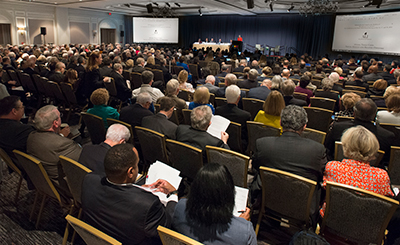Restatement of the Law Third, Torts: Remedies
This project is part of ALI’s ongoing revision of the Restatement Second of Torts. The Restatement Second recognized compensatory damages, injunctions, and other remedies as appropriate in particular cases. The Restatement Third reorganizes, consolidates, and expands the Restatement Second’s discussion of remedies. Portions of the Restatement Second have been superseded by the Restatement Third of Torts: Products Liability, Apportionment of Liability, Liability for Physical and Emotional Harm, and Liability for Economic Harm.
This Restatement addresses tort damages and other remedies. It will include issues related to identifying the types of recoverable damages, such as past and future lost wages, medical expenses, disfigurement, and pain and suffering, as well as measuring damages, including discounting future earnings to present value, and the effect of taxes.
Reporters
Richard L. Hasen
Reporter, Torts: Remedies
Richard L. Hasen is the Gary T. Schwartz Endowed Chair in Law, Professor of Political Science (by courtesy), and Director of the Safeguarding Democracy Project at UCLA School of Law. He is an internationally recognized expert in election law, writing as well in the areas of legislation and statutory interpretation, remedies, and torts. He is co-author of leading casebooks in election law and remedies. Hasen serves in 2024 as an NBC News/MSNBC Election Law Analyst.
Douglas Laycock
Reporter, Torts: Remedies
Douglas Laycock is perhaps the nation’s leading authority on the law of religious liberty and also on the law of remedies. He has taught and written about these topics for four decades. He is currently the Robert E. Scott Distinguished Professor of Law and Professor of Religious Studies at the University of Virginia School of Law, and the Alice McKean Young Regents Chair in Law Emeritus at the University of Texas School of Law.
The ALI Adviser is intended to inform readers about the legal topics and issues examined in many of ALI’s current projects; posts do not necessarily represent the position of the Institute taken in those projects. Posts on The ALI Adviser are written by ALI project participants, ALI members, and outside sources. Completed work is available to purchase online.

